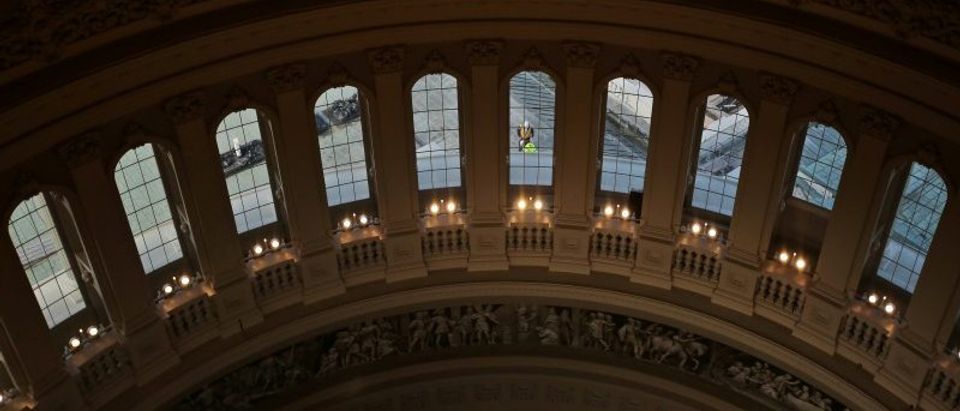WASHINGTON — Top Senate Republicans are open to allowing their planned tax cuts to expire after a period of time, like President George W. Bush’s tax cuts did after 10 years.
Allowing the cuts to expire is known as “sunsetting.”
Missouri Republican Sen. Roy Blunt, a member of the Senate Committee on Appropriations told The New York Times he was open to tax cuts that included sunset provisions, if it was the only way to find Democrats to help pass the tax relief.
“You look at the tax cuts from 2002 and 2003 — well over 90 percent of them became permanent law,” Blunt said.
In 2001, Congress passed President Economic Growth and Tax Relief Reconciliation Act of 2001 (EGTRRA). Lawmakers inserted a provision for its expiration in 2011.
Two years later, Congress passed another Bush tax cut package called the Jobs and Growth Tax Relief Reconciliation Act (JGTRRA) of 2003.
The Bush tax cut packages contained expirations of 10 years as a means to get passage in the Senate through budget reconciliation, which only requires a simple majority under the Byrd rule.
According to the Committee on Rules, “Under the Byrd rule, the Senate is prohibited from considering extraneous matter as part of a reconciliation bill or resolution or conference report thereon. The definition of what constitutes ‘extraneous matter’ is set forth in the Budget Act; however, the term remains subject to considerable interpretation by the presiding officer (who relies on the Senate Parliamentarian).”
Otherwise, Republicans would need to have 60 votes to stop floor debate of the issue to move on to the final vote for legislation like actual tax cuts.
The bill lessened long-term capital gains and dividends to 15 percent as well as sped up measures in EGTRRA intended to be brought in slowly. It was supposed to expire in 2012.
Illinois Democratic Sen. Dick Durbin, Senate Democrat Minority Whip, told The Daily Caller Tuesday that while the Democratic leadership committee had not discussed the matter, he considers expirations on tax cuts to be “reasonable.”
“When it comes to tax policy, you want to make certain that if you’re headed down the wrong road and you’re not getting and you’re not getting your own economic development as you planned, you can revisit it.”
Utah Republican Sen. Orrin Hatch, Chairman of the Senate Finance Committee, said that while he does not support sunsetting tax cuts, sometimes its unavoidable in order to get passage of a tax relief passage.
“There’s usually a demand for sunsetting, but I prefer not,” Hatch told TheDC.
He added, “If I can [I’ll try to prevent tax sunsets], but usually to get things done, you have to compromise and I’m not very enthused about that, but we’ll see. I’d like to not have sunsetting.”
Arizona Republican Sen. John McCain, one of two Republicans who voted against the Bush tax cuts, told TheDC he would have to examine Trump’s tax reform package before making any decisions on whether sunsets should be included.
Trump’s tax reform package reportedly includes corporate tax cut to 15 percent. The rate is currently 35 percent. This would also include hedge funds, real estate investments and multi-partnerships — that presently must pay taxes at the individual rates that go up to 39.6 percent.


